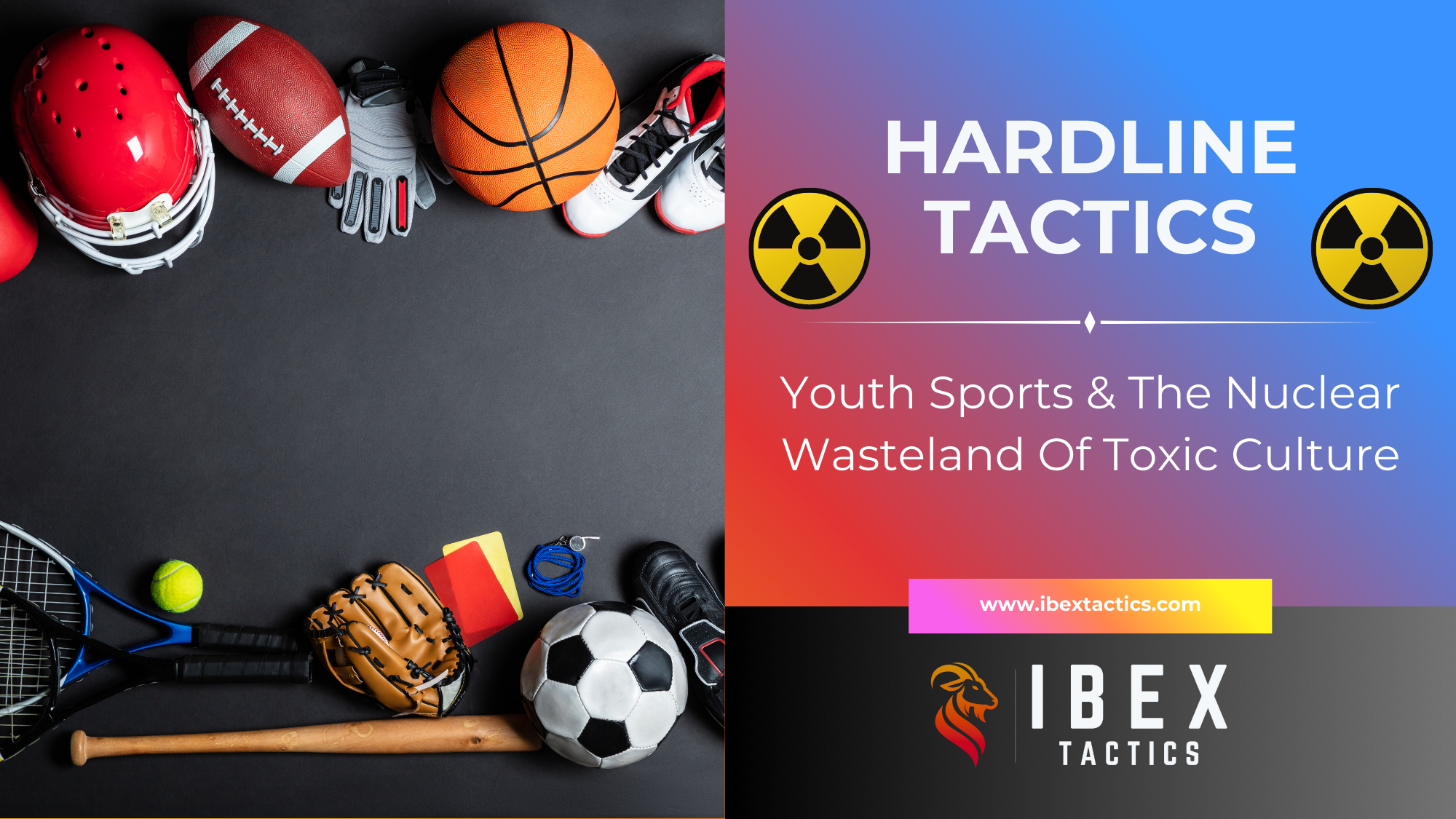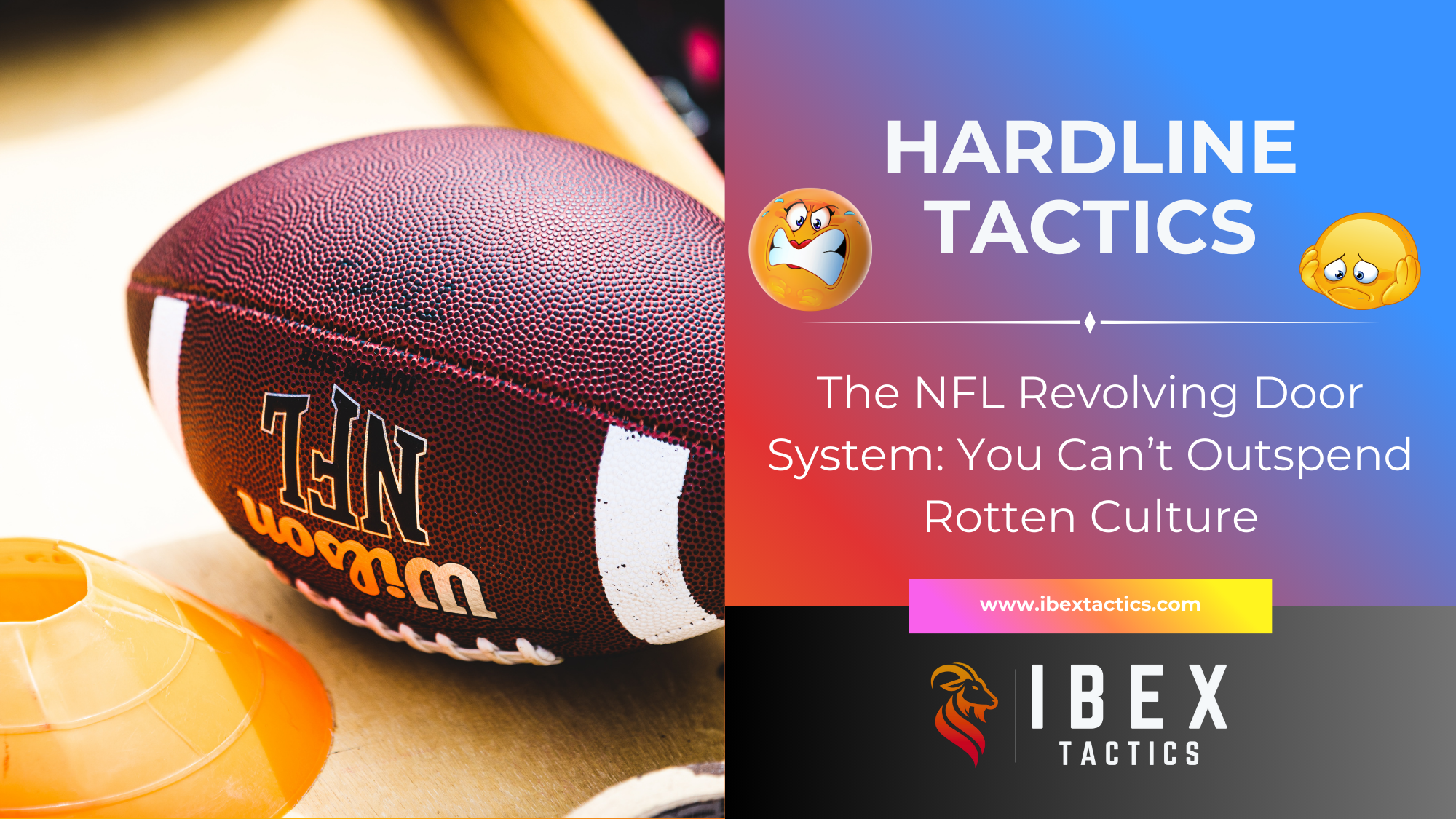The Drive-By Sport Psych Effect: Culture Can’t Be Delivered In A keynote
About Case Study Authors
Ibex Tactics LLC, was founded by Alex Bolowich & Ben Foodman. Before starting the company, Alex and Ben were working with athletes on an individual basis, helping them improve their mental performance using sport psychology-based interventions. While both professionals had incredible success working with some of the world’s most elite athletes, a significant portion of the time they were unable to help some of their clients due to the poor cultures these athletes were immersed in. As a result, Alex and Ben created Ibex Tactics LLC, which dedicated towards providing science-driven solutions to helping teams build resilient cultures.
TABLE OF CONTENTS
INTRODUCTION: The Overnight Culture Fix Never Works
PART I. What Is the Drive-By Sport Psych Effect?
PART II. Why Leaders Constantly Turn To These “Drive-by” Approaches
PART III. Understanding What Team Culture Is & What It Is Not
PART IV. Understand the problem first, instead of going for the quick fix
Introduction: The Overnight Culture Fix Never Works
Whether you are a coach or the leader of a team, at some point in time you have probably tried to find creative ways to motivate your talent by improving your culture. At Ibex Tactics, these are the most common failed approaches we’ve seen leaders use to accomplish this goal:
Hire full-time sport psychologists to go and provide mental performance workshops to both the team and individual talent
Bring in motivational speakers or mental performance “gurus” to talk about mental toughness, how to reduce stress, self-compassion, the importance of wellness, leadership development, blah blah blah
Contract with an organizational psychology consulting group or college professor (Usually with no applied experience in High-performance Environments) to analyze the team dynamics and deliver a one-time report on their observations exclusively using an HR focus (HR IS GREAT…just not for what we’re talking about).
Does any of this sound familiar? If you are a leader that has used one of these methods, how do you actually know if any of this worked? Odds are, you probably don’t, and you are probably experiencing a sinking feeling that you burned thousands of dollars on these low-impact approaches. First, we’re here to tell you it’s OK! But before we start telling you about alternative approaches you should have used, we first need you to understand the root cause of what we refer to as The Drive-By Sport Psych Effect, and WHY you most likely went that route. Let’s dive in!
Part I. What Is the Drive-By Sport Psych Effect?
When leaders are looking to bring on a sport psychologist, motivational speaker, or a COPY AND PASTE corporate-style organizational psychology group (seriously, they all look like the exact same business), it’s because these individuals and businesses market the immediate benefits a team will get when working with them. Tell me if any of these keywords or statements sound familiar to you:
“Cutting-edge strategies to achieve mental toughness in your athletes …”
“We provide tools for organizational health and employee wellbeing…”
“Practical mental skills training for goal setting, positive self-talk…”
“Apply the psychology of high performance and wellbeing…”
This is what we refer to as the drive-by sport psychology effect. A leader feels that they need to see immediate improvement in a specific behavior amongst the collective team, and will usually try to bring in individuals that provide the fastest, most high-impact results. That individual (sport psychologist, motivational speaker, copy & paste organizational psychology team) promptly exits the environment, hopefully leaving all team members with positive vibes.
Listen, we get it! In fact, we used these same keywords and strategies in our previous lives because we thought that was what leaders wanted for their athletes. It’s logical too because if a leader’s team members are exhibiting positive behaviors in these domains, then it is completely reasonable to assume that the organization’s overall performance will improve! We call this Content…meaning that these are surface-level issues. Unfortunately, because so many of these drive-by sport psychologists, motivational speakers and organizational psychology groups only look at surface-level problems, the team only gets surface level solutions. We all know that deep down, leaders want to solve the underlying issue, AKA the Process, so they can get long-term, sustainable solutions for their organization. So, the million-dollar question is why do leaders keep using these same resources over and over again?!
Part II. Why Leaders Constantly Turn To These “drive-by” Approaches
Leaders keep coming back to the same drive-by resources because they don’t understand what to do when faced with organizational problems such as toxic team culture. Because they lack the educational training and applied experience, they will search for anyone that can possibly help them, which oftentimes leads to hiring the wrong professional. For instance, leaders would most likely assume that ANY SPORT & ORGANIZATIONAL PSYCHOLOGIST, would understand how to solve a problem like toxic team culture, because they have training in psychology (the underlying assumption being that psychology is a “hard science”. Spoiler alert…sport and organizational psychology is NOT A HARD SCIENCE!!!! These drive-by sport psychologists are terrified to tell you that because they do not believe anyone will use their services if they don’t claim to provide immediate, tangible results! Therefore, if they focus on surface level solutions, you will probably see some type of short-term, surface level change…but it won’t last. The reason it won’t last is because the deeper underlying issue that needs to be fixed is culture, and anyone with applied experience will tell you that fixing culture requires long-term mental investments, with intense dedication.
Athletic directors, coaches, and leadership have become allergic to the idea of making investments for addressing these types of issues (developing a strong culture) because they’ve been burned so many times funding the short-term, drive-by sport psych resources. To make matters worse, because we live in a fast-paced, “what have you done for me lately” environment where everyone is pressed for time, leaders tend to exclusively look for fast, immediate results! However, there is plenty of research from reputable sources that strongly suggest when organizations take the time to focus on developing their culture, they are likely to yield positive and sustainable results (AKA desired behaviors that are measurable). Take for instance research that was recently analyzed in the Harvard Business Review:
Business observers have long recognized commonalities among leaders nurtured at companies renowned for having strong cultures, such as Procter & Gamble and McKinsey.
In fact, corporate cultures—and not just the strong ones—influence employees’ leadership styles more than any other aspect of their jobs, according to our recent analysis of thousands of executive assessments for more than 100 corporations.
Specifically, we discovered that employees who work for the same corporation, no matter what their jobs, are 30% more likely to exhibit similar leadership competencies—defined as the way a person learns, deduces, envisions, engages, and executes—than people who do the same job but who work in different companies.
That is true even if the people from different companies work in the same industry or region.
Part III. Understanding What Team Culture Is & What It Is Not
We’ve gone into the research supporting culture, but let’s explore in more detail about what a culture is and how you can design it to be performance optimized. At Ibex Tactics, we define culture as shared behaviors amongst a group of people working to accomplish the same mission. Pretty simple. The drive-by sport psych gurus will be CRASHING HARD when they read this because they will start talking about how our definition is incomplete, stating that you need to also include values, beliefs and ethics. These traits can certainly play a role in shaping culture, but not when you are building it from the ground up and trying to create a performance-optimized culture. If you look at any high-performance organization such as the Navy Seals, Formula 1 racing teams, elite collegiate athletic departments, all of these organizations are composed many different individuals with a wide variety of values, beliefs and ethics…yet they somehow still manage to work efficiently together. How is it that these examples contradict the sport psych guru perspective? The answer has to do with human neurobiology.
According to Polyvagal Theory, the vagus nerve plays a significant role in how we respond to the behaviors of other humans. Research conducted by Dr. Stephen Porges, explains the mechanisms through which our brain’s naturally respond to the behaviors of others:
The Social Engagement System has a control component in the cortex (i.e., upper motor neurons) that regulates
brainstem nuclei (i.e., lower motor neurons) to control eyelid opening (e.g., looking)
facial muscles (e.g., emotional expression)
middle ear muscles (e.g., extracting human voice from background noise)
muscles of mastication (e.g., ingestion)
laryngeal and pharyngeal muscles (e.g., prosody and intonation)
head turning muscles (e.g., social gesture and orientation).
Collectively, these muscles function both as determinants of engagement with the social environment and as filters that limit social stimuli.
The neural pathways that raise the eyelids also tense the stapedius muscle in the middle ear, which facilitates hearing human voice.
Thus, the neural mechanisms for making eye contact are shared with those needed to listen to human voice.
Essentially, one of the most influential structures in our brain that is responsible for involuntary behaviors has significant influence over how we interact with other humans. This part of the brain doesn’t involuntarily respond to values, beliefs or ethics, but rather is exclusively programmed to be alert to human behaviors. When you look at some of the most elite organizations we mentioned such as the Navy Seals, there are endless accounts about how team members consistently tap into this primative part of our brain and leverage it for performance. At Ibex Tactics, we contend that a performance-optimized culture which focuses using tools to enhance the best aspects of human behavior will yield the best results on a macro and micro-level. Which leads us to the most obvious question…how can organizations do this?
Part IV. Understand the problem First, instead of going for the quick-fix
In order to build a performance-optimized culture, all organizations need to first assess what their strengths and weaknesses currently are amongst team members. This means that they need to look at specific metrics associated with building the foundation of their culture. If this is something you are interested in learning more about, we are unlocking our premier A-5 Assessment…for FREE. We will even give you a FREE strategy call with us to see where you need to shift your focus and what interventions you can start using immediately to build out your dream…er, team culture!
NOTE TO READER:
Alex and Ben wanted to compile their expertise in the Ibex Tactics Case Studies to help teams in the sports and corporate sector better understand how many of the issues they are dealing with are more often than not related to culture. Most teams recognize that culture is an important component of their success, but do not always have the resources or expertise to analyze the complexity of culture. If you are interested in learning more about the services that Ibex Tactics offers to help with culture development, use the contact form below and sign up with your email to receive updates on new services and case studies!
Start your application today!
Are you looking for a way to enhance your organization’s performance outcomes? Are you curious to learn more strategies that can enhance your team culture? Use the form below to begin the application process to start the process of getting on our client list!
ARE YOU A PART OF THE HERD?!
Make sure you stay up to date on new case studies, services and relevant updates about Ibex Tactics! Don’t wait! Sign up below!

















